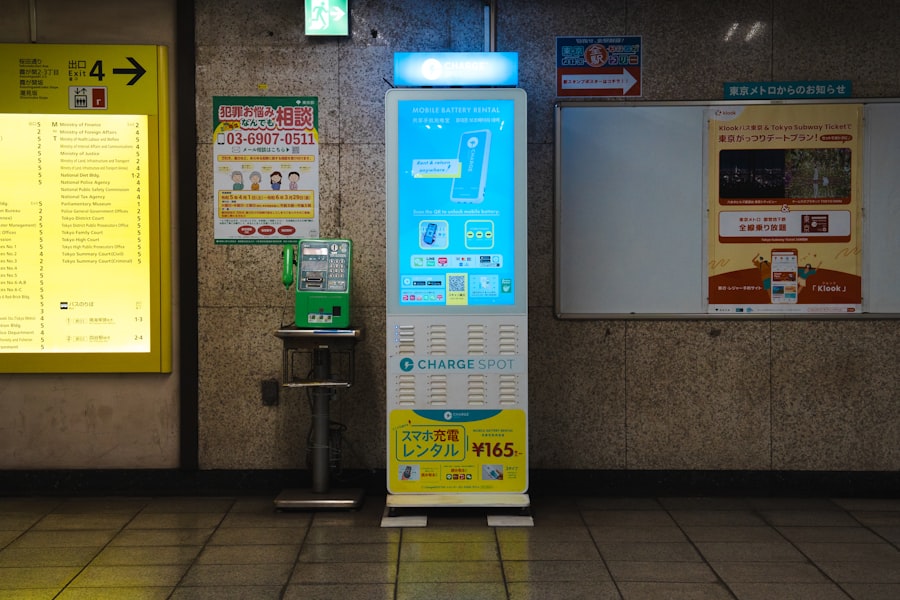
Flexibility in the workplace has emerged as a cornerstone of modern organizational culture, reflecting a shift from rigid structures to more dynamic environments. This transformation is driven by various factors, including technological advancements, globalization, and the evolving expectations of the workforce. In an era where change is the only constant, organizations that prioritize flexibility are better equipped to respond to market demands, innovate, and maintain a competitive edge.
Flexibility encompasses not only work hours and locations but also the ability to adapt roles and responsibilities as needed. This adaptability fosters a culture of trust and empowerment, allowing employees to take ownership of their work while balancing personal commitments. Moreover, flexibility is crucial for attracting and retaining talent.
Today’s workforce, particularly millennials and Generation Z, values work-life balance and seeks employers who understand the importance of accommodating personal needs. Companies that offer flexible work arrangements—such as remote work options, flexible hours, or compressed workweeks—are more likely to attract top talent. This approach not only enhances employee satisfaction but also reduces turnover rates, ultimately leading to a more stable and engaged workforce.
By recognizing the importance of flexibility, organizations can create an environment that nurtures creativity and innovation, essential components for long-term success.
Key Takeaways
- Flexibility in the workplace is crucial for adapting to changing circumstances and maintaining productivity.
- Flexibility promotes critical thinking by allowing employees to approach problems from different angles and consider alternative solutions.
- Developing adaptability and open-mindedness is essential for thriving in a dynamic work environment.
- Embracing change and uncertainty can lead to growth and innovation within an organization.
- Building problem-solving skills is a key benefit of flexibility, as it encourages employees to think creatively and find effective solutions to challenges.
Recognizing the Benefits of Flexibility for Critical Thinking
Flexibility in the workplace significantly enhances critical thinking skills among employees. When individuals are given the freedom to approach problems from various angles and explore alternative solutions without the constraints of rigid protocols, they are more likely to engage in deeper analytical thinking. This environment encourages employees to question assumptions, evaluate evidence critically, and consider multiple perspectives before arriving at conclusions.
For instance, a team working on a product development project may benefit from brainstorming sessions that allow for open dialogue and diverse viewpoints, leading to innovative solutions that might not have emerged in a more structured setting. Furthermore, flexible work arrangements can lead to improved mental well-being, which is closely linked to enhanced critical thinking capabilities. When employees feel supported in managing their work-life balance, they experience reduced stress levels and increased job satisfaction.
This positive mental state fosters a conducive atmosphere for critical thinking, as individuals are more likely to engage in reflective practices and creative problem-solving. For example, a software development team that operates under flexible deadlines may find that their members are more willing to experiment with new coding techniques or technologies, ultimately leading to more robust and innovative software solutions.
Developing Adaptability and Open-Mindedness

Adaptability is a vital skill in today’s fast-paced work environment, where change can occur rapidly and unexpectedly. Developing adaptability involves cultivating a mindset that embraces change rather than resists it. Employees who are adaptable are more likely to thrive in situations that require quick thinking and responsiveness.
Employees who are adaptable are more likely to thrive in situations that require quick thinking and responsiveness. For instance, during a sudden shift in market trends or consumer preferences, an adaptable marketing team can pivot their strategies effectively, ensuring that their campaigns remain relevant and impactful. This ability to adjust not only benefits individual employees but also contributes to the overall agility of the organization.
Open-mindedness complements adaptability by encouraging individuals to consider new ideas and perspectives. In a workplace that values open-mindedness, employees are more inclined to engage in constructive discussions and collaborate with colleagues from diverse backgrounds. This diversity of thought can lead to innovative solutions and improved problem-solving capabilities.
For example, a project team composed of members with varying expertise—such as design, engineering, and marketing—can leverage their unique insights to create a product that meets customer needs more effectively than if they operated in silos. By fostering an environment that promotes adaptability and open-mindedness, organizations can cultivate a workforce that is resilient in the face of change.
Embracing Change and Uncertainty
| Metrics | 2019 | 2020 | 2021 |
|---|---|---|---|
| Employee turnover rate | 12% | 15% | 10% |
| Number of change initiatives | 5 | 8 | 6 |
| Training hours on adaptability | 100 | 150 | 120 |
Embracing change and uncertainty is essential for both individual growth and organizational success. In a world characterized by rapid technological advancements and shifting market dynamics, the ability to navigate uncertainty has become a critical competency. Employees who embrace change are more likely to view challenges as opportunities for growth rather than obstacles to be avoided.
For instance, when faced with the implementation of new software systems, employees who approach the transition with a positive mindset are more likely to engage with the training process actively and contribute to a smoother integration. Organizations that foster a culture of embracing change can create an environment where innovation flourishes. When employees feel safe to experiment with new ideas without fear of failure, they are more likely to take calculated risks that can lead to breakthrough innovations.
For example, companies like Google encourage their employees to spend a portion of their time on personal projects or “20% time,” which has led to the development of successful products like Gmail and Google News. By promoting an attitude of embracing change and uncertainty, organizations can harness the creative potential of their workforce.
Building Problem-Solving Skills
Problem-solving skills are indispensable in any workplace setting, as they enable employees to address challenges effectively and efficiently. Building these skills requires a combination of analytical thinking, creativity, and collaboration. Organizations can foster problem-solving abilities by providing employees with opportunities to engage in real-world challenges that require innovative solutions.
For instance, companies might implement hackathons or innovation labs where teams can tackle specific problems within a limited timeframe, encouraging them to think outside the box.
When employees are encouraged to seek out new knowledge and experiences, they develop a broader toolkit for addressing challenges.
Training programs focused on critical thinking, design thinking methodologies, or even cross-departmental collaboration can equip employees with diverse approaches to problem-solving.
Improving Decision-Making Abilities

Effective decision-making is a fundamental skill that impacts every level of an organization. The ability to make informed decisions quickly is particularly important in fast-paced environments where time-sensitive choices can significantly affect outcomes. Flexibility plays a crucial role in enhancing decision-making abilities by allowing individuals to weigh options thoughtfully while remaining open to new information.
For instance, during a product launch, marketing teams must analyze consumer feedback rapidly and adjust their strategies accordingly; those who can pivot quickly based on real-time data will likely achieve better results. Moreover, organizations can improve decision-making processes by promoting collaborative approaches that involve diverse perspectives. When teams come together to discuss options openly, they can identify potential pitfalls and opportunities that may not be apparent when decisions are made in isolation.
For example, cross-functional teams tasked with launching new initiatives can draw on their varied expertise to evaluate risks comprehensively and make well-rounded decisions. By fostering an environment where collaboration is encouraged and flexibility is valued, organizations can enhance their overall decision-making capabilities.
Cultivating Resilience and Stress Management
Resilience is the ability to bounce back from setbacks and maintain focus amid challenges—a crucial trait for employees navigating today’s complex work environments. Cultivating resilience involves developing coping strategies that enable individuals to manage stress effectively while maintaining productivity. Organizations can support this development by providing resources such as employee assistance programs (EAPs), wellness initiatives, or training on stress management techniques.
For instance, offering mindfulness workshops can equip employees with tools to manage stress proactively rather than reactively. Additionally, fostering a supportive workplace culture is essential for building resilience among employees. When individuals feel valued and supported by their colleagues and leadership, they are more likely to develop a sense of belonging that bolsters their resilience during difficult times.
For example, organizations that encourage open communication about mental health challenges create an environment where employees feel comfortable seeking help when needed. This supportive atmosphere not only enhances individual resilience but also contributes to overall team cohesion and morale.
Enhancing Communication and Collaboration Skills
Effective communication and collaboration are vital components of any successful workplace. Flexibility enhances these skills by encouraging open dialogue among team members and promoting an inclusive atmosphere where diverse ideas can flourish. When employees feel comfortable sharing their thoughts without fear of judgment, they are more likely to engage in meaningful discussions that lead to innovative solutions.
For instance, regular team meetings that prioritize open communication allow members to voice concerns or suggestions freely, fostering a collaborative spirit. Moreover, organizations can enhance communication skills through targeted training programs focused on active listening, conflict resolution, and constructive feedback techniques. These programs equip employees with the tools necessary for effective collaboration across departments or teams.
For example, cross-training initiatives that allow employees from different functions to work together on projects can break down silos and improve overall communication within the organization. By prioritizing communication and collaboration skills within a flexible framework, organizations can create a cohesive workforce capable of tackling complex challenges together.
Critical thinking is a vital soft skill that enhances decision-making and problem-solving abilities in the workplace. To further complement your understanding of critical thinking, exploring the concept of work ethic is highly beneficial. Work ethic involves dedication, responsibility, and a positive attitude, which are crucial for effectively applying critical thinking in professional settings. You can learn more about how work ethic complements critical thinking by visiting Soft Skills: Work Ethic. This article provides insights into how a strong work ethic can enhance your ability to think critically and adapt to various challenges at work.
FAQs
What are critical thinking soft skills?
Critical thinking soft skills refer to the ability to analyze and evaluate information in a logical and systematic way. It involves being open-minded, considering different perspectives, and making well-reasoned decisions.
Why are critical thinking soft skills important for work?
Critical thinking soft skills are important for work because they enable individuals to solve complex problems, make sound decisions, and adapt to changing circumstances. Employers value these skills because they contribute to a more efficient and innovative workforce.
How does flexibility relate to critical thinking soft skills?
Flexibility is an important aspect of critical thinking soft skills because it involves being open to new ideas, adapting to change, and considering alternative solutions. Flexibility allows individuals to approach problems from different angles and consider diverse perspectives.
How can individuals develop their critical thinking soft skills for work?
Individuals can develop their critical thinking soft skills for work by practicing active listening, seeking feedback, engaging in constructive debate, and challenging their own assumptions. They can also participate in training programs and workshops focused on critical thinking and problem-solving.





